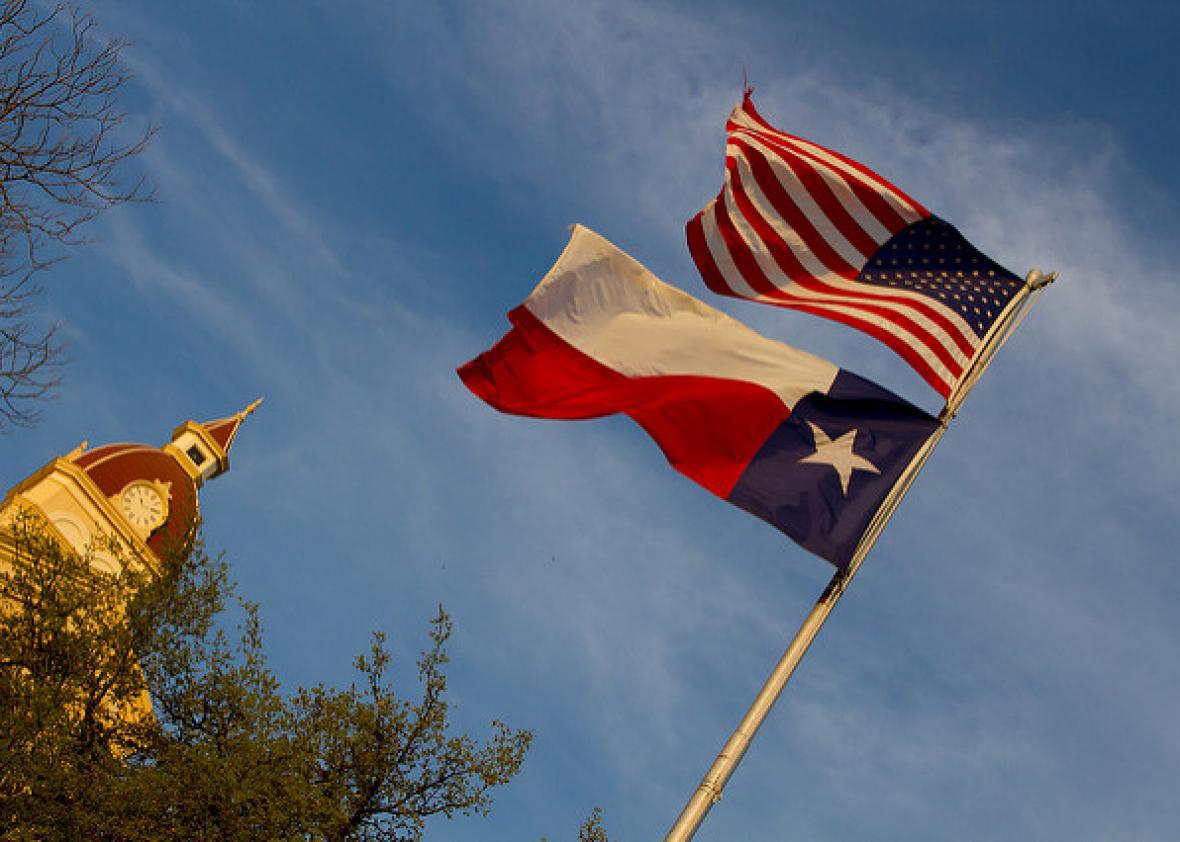Last Wednesday, the Texas Senate approved a bill that would allow religious clerks to opt out of issuing marriage licenses to same-sex couples. The measure now goes to the Republican-dominated House, where it stands a good chance of passing. For the most part, the Texas bill mirrors other Republican proposals designed to let religious clerks refuse to recognize the validity of same-sex marriages. But it has one fascinating addition: The measure allows county courts to hire random people to issue same-sex marriage licenses so that anti-gay clerks don’t have to.
Here’s how the scheme would work. In Texas, it’s pretty easy to get married: A county clerk simply certifies the couple’s application for a marriage license, administers a brief oath, then issues the license. Under the new bill, SB 522, most couples would undergo the same process. But if a clerk has “a sincerely held religious belief”—namely, anti-gay animus—that prevents him from issuing a license, the unlucky couple gets shunted off to a different track. First, the clerk can ask a deputy clerk to do his job for him. If no deputy clerk is ready and willing, the clerk can try to grab a judge or magistrate to perform his duties. If there’s no judge or magistrate on hand, the job falls to a “certifying official”—whose sole assignment is to issue licenses to couples who are rejected by clerks.
And who, exactly, is this “certifying official” tasked with marrying rejected same-sex couples? Pretty much anybody! SB 522 orders commissioners courts, which govern Texas counties, to designate a county employee to serve as the “certifying official” when nobody else is willing to issue a license. If no county employee volunteers, the commissioners court can contract with somebody else to do it instead. SB 522 doesn’t lay out any requirements for this position; it only notes that the contractor need not live in the county that hires him, and that he is “not authorized to perform” any duty except issuing marriage licenses. If the “certifying official” isn’t nearby, he can perform this lone duty “by telephone or electronic means.”
The upshot of this arrangement is that a same-sex couple living in a homophobic Texas county may wind up being married by a random government contractor over the phone. But SB 522 will not only ensnare same-sex couples. Although its sponsors intended their bill to apply to gay people, the measure’s broad language sweeps in any “sincerely held religious belief.” If passed, the bill will allow clerks to turn away any couple whose marriage violates their beliefs—including, most obviously, interfaith and interracial couples.
Admittedly, there are worse fates for minority couples in America than being married by some contractor over the phone. Just look at a new lawsuit filed by Americans United and Fairness West Virginia which alleges that several West Virginia clerks screamed at a lesbian couple attempting to obtain a marriage license, calling them an “abomination” to God. One clerk reportedly declared that it was her “religious right” to discriminate against same-sex couples.
It is undoubtedly better to be married over the phone than to be told that you are an abomination and denied a marriage license. But it is better still to keep individual religious preferences out of the formal marriage process altogether. The fundamental problem with a bill like SB 522 is that it views the performance of government duties as personal expression, turning the mechanical process of licensing marriages into a moral act of free will. That is a ridiculous misunderstanding of how government works. County clerks are state officials who are paid by taxpayers to help implement the law. If they do not like an aspect of their job, they should quit. The state has no business accommodating their prejudices by allowing them to burden the people whom they are paid to serve.
